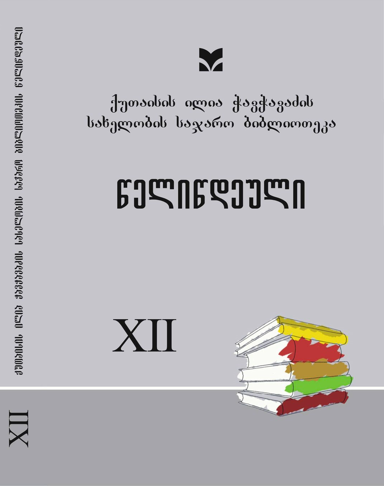For the History of the Words "Tujari" and "Katibi" in the Adjarian Dialect
Keywords:
Word Borrowing, Adjarian Dialect, Arabic Language, Terms Denoting Professions, Katibi, TujariAbstract
Borrowing words is one of the main sources of expanding and enriching the lexical composition of a language. Identifying linguistic units acquired from foreign languages is always an important and necessary stage in the study of language history. The separation of borrowed material and its differentiation from the root vocabulary is of great importance in determining the regular phonetic correspondences between related languages.
Words and expressions borrowed from Eastern languages, including Arabic, take an important place in the lexical composition of the Georgian language. The words established from Arabic to Georgian are of different times and different natures. Here you can find all kinds of borrowing, be it lexical units combined as a result of a living linguistic relationship or entered in a book, words entered directly from Arabic or through other languages (Persian, Turkish, etc.).
The aim of the paper is a phonetic-semantic analysis of two terms of Arabic origin (Tajiri, Katib) denoting the profession in the Adjaran dialect and clarifying the ways of entry.
Tujjari - means ‘a merchant’ in Acharan (Sh. Nizharadze); The form Tajiri originates from j^ (tagir), while tujjari/tujari originates from j^(tagir). In my opinion, tujjari in Acharan has been borrowed via Turkish (cf.: Turk.tiiccar).
katibi<— ^-d^ (katib), in the meaning of ‘scribe’, ‘secretary’ is represented in Acharan (Sh. Nizharadze). It may be assumed that the form katibi entered Acharan via Turkish (cf.: Turk. katip): the p of Literary Turkish is transformed into Turkish dialects and Adjarian as b, e.g. Achar. mektebi •<— Turk. dial. mekteb <— Lit. Turk. mektep<— Arab. ^^ ‘ school’ (N. Gurgenidze).
Thus, both lexical units analyzed in the paper are transferred to Adjaran in their Arabic format. Not all meanings of the polysemantic word came out in Adjaran after borrowing. For the most part, Arabic words retain only their basic meaning when entering Georgian. The semantics of some terms are close to the activated meaning in the corresponding Turkish variant.
Phonotactics of words established in Adjaran give us a slightly different picture. This is also natural, as it concerns borrowing between two completely different phonological systems, such as Georgian and Arabic (especially if the intermediate language is Turkish).




